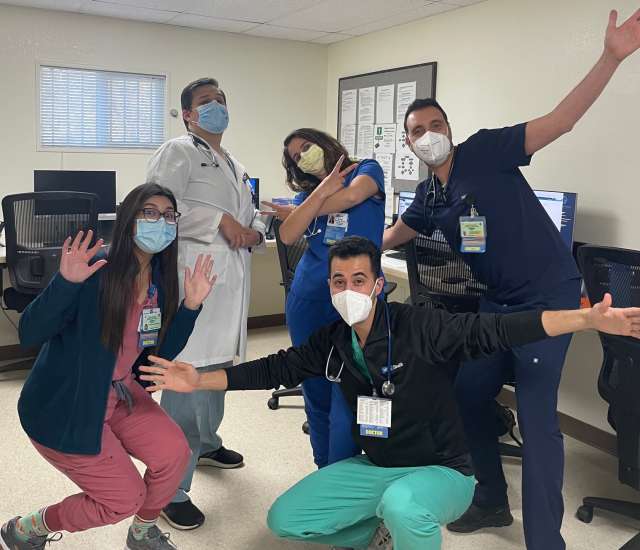Curriculum
Our Curriculum

The UCLA Primary Care Program takes pride in an innovative and dynamic curriculum designed to develop high-quality general internists who can adapt to the evolving role of the primary care physician. We subscribe to the “clinic-first” model, believing that caring for patients in a clinic is the most important and relevant curriculum to develop excellent primary care physicians. We provide our trainees with the broad clinical exposure to health systems and diverse patient populations required to excel in managing the myriad of conditions seen in practice. Our graduates are not only trained to provide excellent clinical care, but are also poised to become leaders and advocates in their organizations and communities.
Our curriculum foregrounds inclusive excellence through didactics, clinics, community sessions, and advocacy training. The curriculum includes built-in opportunities for community engagement, QI projects aimed at advancing the health of populations with higher rates of disease burden, and learning from leaders in public health research and policy.
Residents have flexibility to explore and develop their areas of interest, and we encourage our residents to explore clinical and scholarly niches. In addition to the various enrichment opportunities described at the links below, primary care residents also have full access to the broader internal medicine residency pathways (e.g. Health Equity & Advocacy pathway, Medical Education pathway, and Global Health pathway).
Learn more about our curriculum at the links below!
- The 4+2 Model and The Dual Clinic Model
- Focus Sessions, Community Medicine, and Didactics
- Primary Care Medicine Blocks
- Sample Schedules
